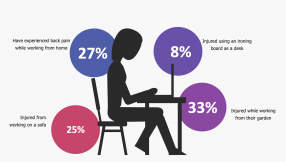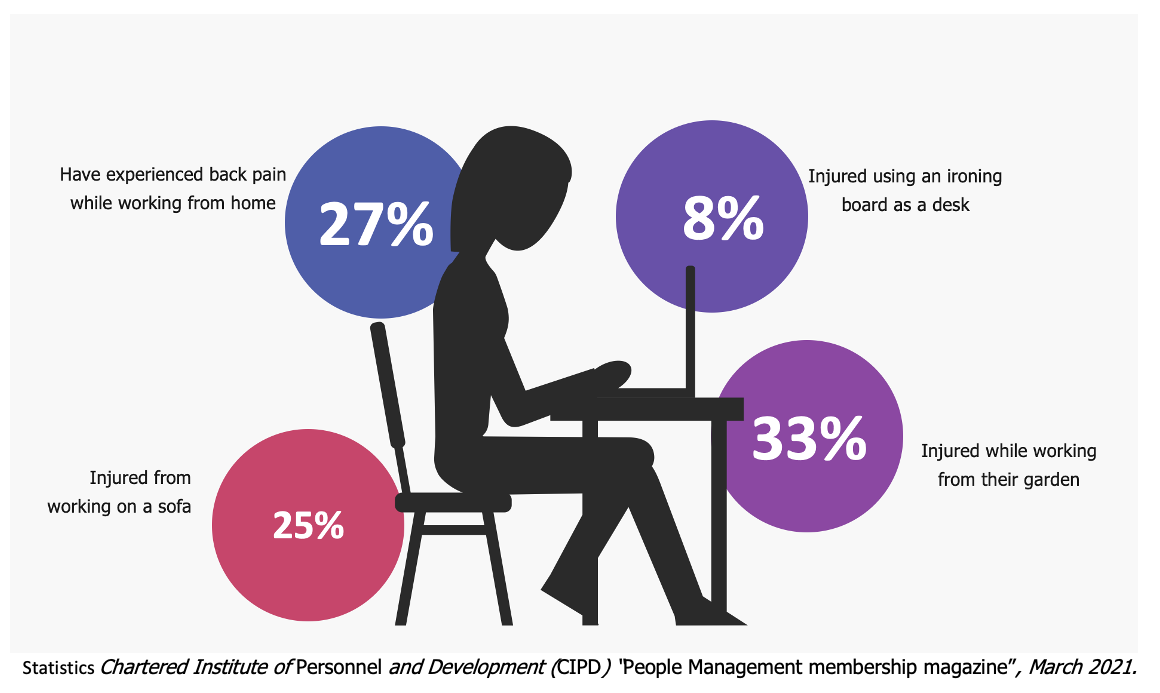
To date, mid April 2021, the UK government advice continues to be to work from home unless your job can’t be worked from home. In addition, the CIPD (in their #FlexFrom1st campaign) are lobbying to try and ensure that more staff have the option for flexible working in their roles which will include the option of being able to work from home. In discussions with friends, family and clients, it is apparent that many employers – and their staff – will want to continue with homeworking arrangements in the future and some employers are even giving up their offices in favour of homeworking.
It remains important for employers to discuss working arrangements with staff and employers should continue to take every possible step to facilitate their employees working from home. But what do these steps actually mean? how far do you have to go? do you have to provide a workplace? chair? printer? and how about employees wanting to be reimbursed for additional heating costs or Broadband/phone costs?
Firstly, an employer’s responsibility for their workers’ health and safety is detailed in the Workplace (Health, Safety and Welfare) Regulations 1992 which states that even if employees are working from home, employers still have a duty to do whatever is reasonably practicable to protect their health and safety. This includes carrying out risk assessments on their workstations even if that is at home. The Health and Safety Executive have a specific section on homeworkers offering advice and documents for you to use. In particular, there is a workstation checklist which you can ask all your staff to complete at home. Particular areas of risk include using display screen equipment for long periods of time which can lead to eye strain (all those zoom meetings for instance!), and back pain and repetitive strain injury which, again can be worsened by not having proper breaks. In addition to the physical risks, the mental health and wellbeing of staff is also just as important. Where staff are working from home and completely isolated from work colleagues, and perhaps other people, this can lead to depressive illnesses.
Secondly, you should provide your employees with the right equipment and technology to work from home. This can be agreed with your staff and may include an appropriate desk and chair (to avoid those accidents previously mentioned) and also a reliable and secure internet connection. If you haven’t already listened to my podcast with Mark Riddell giving some really helpful tips about data security when working from home, here is the link.
Thirdly, make sure that your staff know how they will be supported. I am still surprised at the number of people I know who are working from home who have had very little one-to-one support, mentoring, development, or appraisal in the year since they had this new workplace. It is even more vital than ever to ensure that support is there for staff – on a basic level, they need to feel valued, to be recognised, remembered even. They also need to know where to go for help and support when needed.
In terms of who pays for what, if you haven’t been able to persuade your boss to pay out for any of your equipment or if your employer won’t contribute to your additional lighting, heating and broadband bills, then there is help from an unusual source. Employees may be able to claim tax relief for these additional household costs if working from home on a regular basis. From 6 April 2020 you can claim £6 a week and you can find more information here.
The Scottish Government recently published statutory guidance on working from home during the pandemic. In the guidance they stress that it is their intention for people to continue working from home. Recognising that there are other issues to consider as part of re-starting the economy, homeworking is included in their “Fair Work” practice statement. Indeed, many businesses across the UK are already engaging with staff with a view to them being given the option of continuing to work from home on either a permanent basis or a mixture of home- and office-based working. Much will be dependent on individuals own personal view and therefore there is no one size fits all which is why it is so important to engage with your staff about this. The Scottish government have also provided a checklist to assist employers in considering the necessary factors for implementing homeworking and it can be a helpful checklist for ongoing working from home.

Finally, employees also need to be reminded of the importance of checking their home insurance to make sure they have appropriate cover now that their workplace is at home.
To conclude, there will, I am sure, continue to be an ever increasing percentage of staff who want to continue to work from home. We must ensure that everyone is aware of their own rights when working from home - both employers and employees – and that the support and sense of “team” continues regardless of where staff are working.
Thank you for taking the time to read my blog. I hope it has given you a helpful insight. Please feel free to contact me if you have any questions or queries.
Caroline






